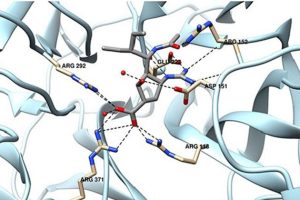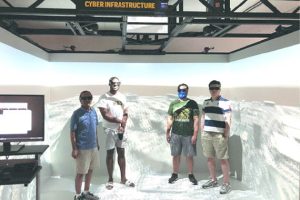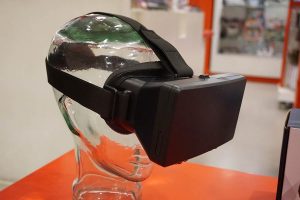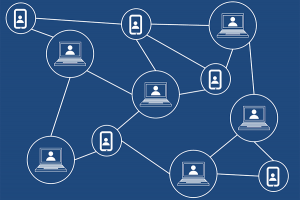
Feb. 22, 2022
Engineer uses advanced deep learning to predict where proteins will localize within cells
A Mizzou Engineer is developing computational tools that can be used to predict where proteins will localize within a cell. Using highly advanced deep learning, the resource could help researchers better understand how proteins function or, if positioned incorrectly within a cell, misfire and cause problems.

Feb. 15, 2022
Researchers use machine learning to decipher 17th Century handwriting
University of Missouri researchers are closer to deciphering historical scripts that could shed light on life and business in 17th Century Latin America.

Feb. 4, 2022
Engineer proposes deep learning system to speed drug development
A Mizzou Engineer has proposed a new deep learning system that would speed up drug development by more accurately predicting how drugs and proteins interact.

Feb. 2, 2022
Team studies virtual reality platforms using new CAVE
The team attempted to develop a new software that can create large-scale virtual models in the CAVE on campus.

Jan. 3, 2022
Mizzou Engineers to help NextGen Precision Health professionals process, analyze, protect big data
Mizzou Engineers will help NextGen Precision Health professionals analyze the large volumes of information coming from sophisticated MRI and other imaging equipment, as well as determining how best to store that information securely.

Nov. 19, 2021
Mizzou Engineering hosts 14th CANSec Workshop
Cybersecurity experts from across the region convened at the 14th Central Area Networking and Security Workshop (CANSec) hosted by Mizzou Engineering.

Aug. 4, 2021
Researchers aim to protect cyber space in virtual reality environments
A Mizzou Engineering team is beginning to study possible cyber threats in virtual reality environments.

Nov. 4, 2020
Mizzou Engineer Part of Global Team Investigating Blockchain Technologies
Mizzou Engineers are part of a new global team investigating how blockchain technology could revolutionize the insurance industry. Blockchain is an advanced data-sharing system that allows multiple parties to view and manage information in real time. It’s promising technology for the insurance sector—especially when it comes to the complex claims process—however, it is still in early development.

Oct. 20, 2020
Mizzou Engineering Hosts Virtual AIPR Conference
Mizzou Engineering hosted the 49th annual Applied Imagery Pattern Recognition (AIPR) conference last week, proving that a virtual event can be just as robust as meeting in person.

Sep. 16, 2020
Mizzou Cyber Range to Focus on Cyber Pretense Strategies
Hackers are getting smarter about ways to steal sensitive information from the cloud. Now, a new “Mizzou Cyber Range” will train the next generation of cybersecurity professionals to fight back using cyber pretense strategies. Armed with new grant funding from the National Security Agency, Prasad Calyam and his team are building the Mizzou Cyber Range through the MU Center for Cyber Education, Research and Infrastructure.